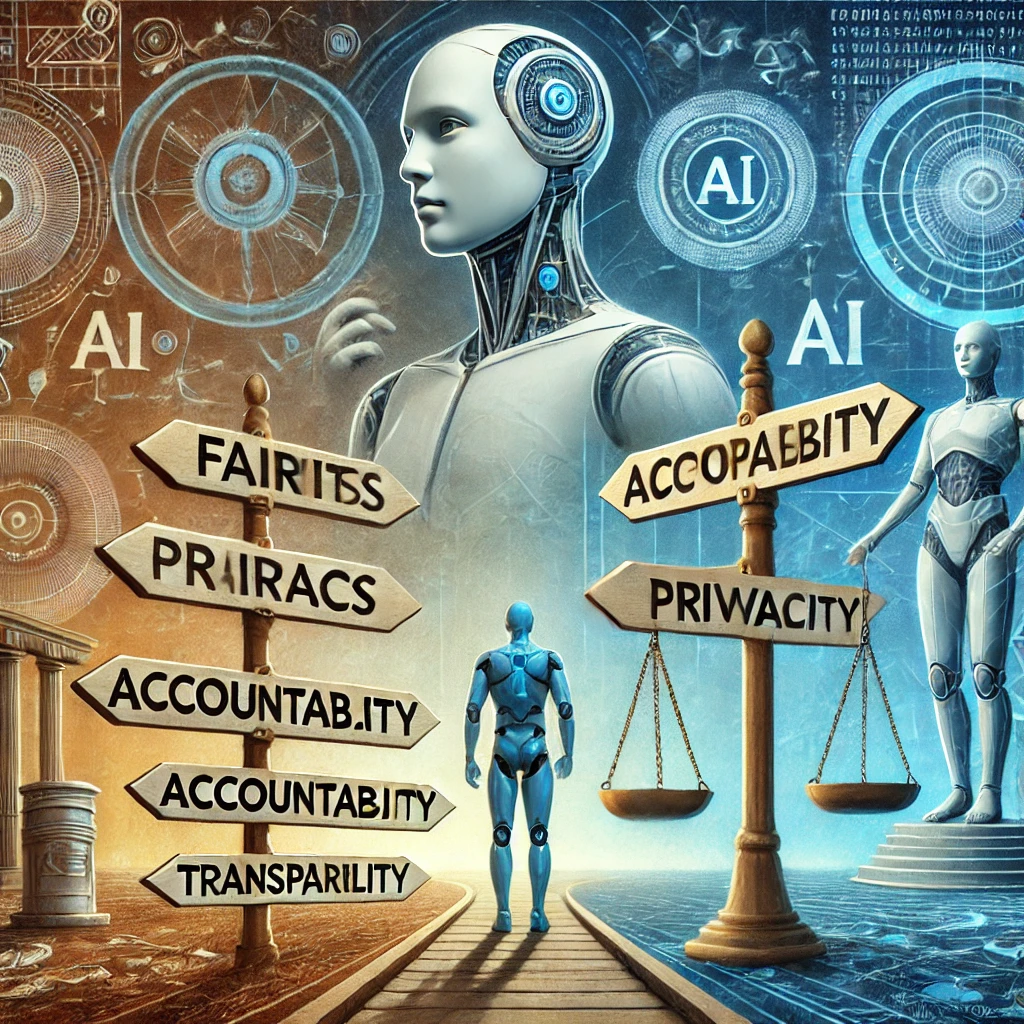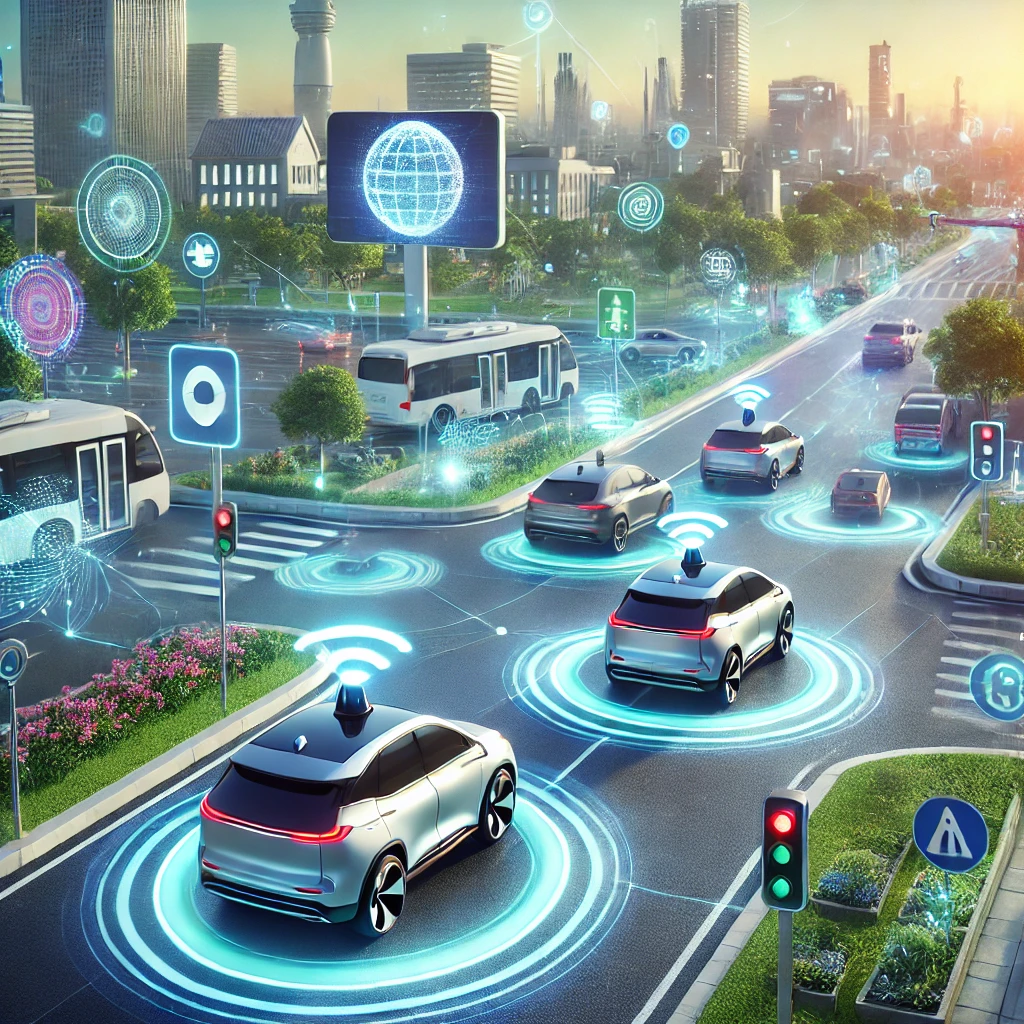Artificial Intelligence (AI) is revolutionizing industries, transforming economies, and changing how we interact. From healthcare to self-driving cars, AI’s influence is substantial and far-reaching. However, with this power comes the need for responsibility. As AI becomes more sophisticated, it introduces significant ethical concerns. How can we ensure AI acts fairly, respects privacy, and aligns with human values? This article examines the main ethical challenges of AI and suggests ways to address these moral dilemmas.
What is AI Ethics?
AI ethics is an interdisciplinary field that considers the moral consequences of AI systems and their creation. It looks at the effects of AI on society, individuals, and the environment, focusing on fairness, accountability, and harm prevention. Key aspects include:
- Fairness: Ensuring AI does not reinforce or increase bias.
- Transparency: Making AI decision-making processes clear.
- Accountability: Identifying who is responsible when AI fails or causes damage.
- Privacy: Protecting personal data and user autonomy.
Moral Dilemmas in Machine Learning
AI systems often encounter situations where ethical decisions are complex and ambiguous. These dilemmas can lead to significant impacts:
Bias and Discrimination
Problem: Machine learning models can learn from data that contains historical biases. For example, an AI system used in hiring might unfairly disadvantage women or minorities if trained on biased datasets.
Example: In 2018, a major tech company’s hiring algorithm was found to discriminate against women because of biased historical data.
Solution: Using diverse and representative datasets and conducting rigorous bias testing is essential. Developing fairness-aware algorithms can also help address these issues.
Autonomous Decision-Making
Problem: Autonomous systems, like self-driving cars, must make decisions in critical situations (e.g., the “trolley problem”).
Example: If a self-driving car faces an unavoidable accident, how should it decide whose lives to prioritize?
Solution: Creating ethical frameworks for AI decision-making and involving public opinion to ensure alignment with societal values is necessary.
Privacy and Surveillance
Problem: AI systems often depend on vast amounts of personal data, raising issues about surveillance and privacy loss.
Example: The use of facial recognition technology by law enforcement has been criticized for potential abuse and privacy invasion.
Solution: Establishing strong data protection laws and ethical guidelines for AI use is crucial.
Accountability and Responsibility
Problem: When AI causes harm, determining accountability can be challenging—whether it lies with developers, users, or the system itself.
Example: In healthcare, if an AI misdiagnoses a patient, who is responsible for the outcome?
Solution: Clearly defining accountability frameworks and including human oversight in crucial decision-making processes is vital.
Weaponization of AI
Problem: AI can be used in autonomous weapons, raising concerns about their use in conflict.
Example: Autonomous drones capable of selecting and engaging targets without human intervention.
Solution: International agreements and treaties to regulate or prohibit autonomous weapons are necessary.
Principles for Ethical AI Development
Several organizations and researchers have suggested principles to guide ethical AI development and deployment:
- Transparency: AI systems should be explainable, and their decision-making processes should be understandable.
- Fairness: AI should not perpetuate inequality or discrimination.
- Accountability: Developers and users of AI should be responsible for their systems’ actions.
- Human-Centric Design: AI should enhance human well-being and respect human rights.
- Safety: AI systems should be robust and secure, reducing the risk of harm.
By adhering to these principles, we can navigate the ethical challenges posed by AI and ensure its development benefits society as a whole.
Ethical AI in Practice
Various sectors are integrating ethical standards to address these challenges:
Healthcare: AI tools, such as diagnostic and patient-monitoring systems, emphasize transparency and the protection of patient data. Often, hospitals combine AI diagnostics with human oversight to maintain accuracy.
Finance: Financial institutions utilize AI to detect fraud, but it’s essential to prevent algorithmic bias that could lead to unfair service denial. Regular audits and adherence to anti-discrimination laws are standard practices.
Education: AI-driven adaptive learning platforms tailor education to individual needs but must ensure fairness for all students, regardless of their socioeconomic status.
Future Challenges in AI Ethics
As AI advances, it brings new ethical concerns:
Artificial General Intelligence (AGI): As AI systems near human-like intelligence, issues surrounding autonomy, rights, and control become increasingly important.
Job Displacement: Automation by AI raises ethical questions about economic disparities and the responsibility to support affected workers.
Deepfakes and Misinformation: AI’s capacity to produce highly realistic content challenges the integrity and trustworthiness of media.
Navigating the Path Forward
Addressing AI’s ethical issues requires collaboration among governments, businesses, academia, and the public. Key steps include:
Developing Ethical Guidelines: Governments and organizations need to create comprehensive AI ethics policies, such as the EU’s AI Act.
Promoting Interdisciplinary Research: Cooperation between technologists, ethicists, and social scientists can lead to well-rounded solutions.
Public Engagement: Involving the public in AI ethics discussions ensures that policies and practices reflect societal values.
International Cooperation: Given that AI ethics is a global issue, it requires coordinated regulations and agreements.
Conclusion
Ethical considerations in AI are complex and ever-changing, demanding careful thought about moral issues, societal impact, and potential risks. By embracing principles like fairness, transparency, and accountability, and encouraging stakeholder collaboration, we can steer AI development to benefit humanity while minimizing risks. The path to ethical AI involves both technological innovation and a reaffirmed commitment to human values.




